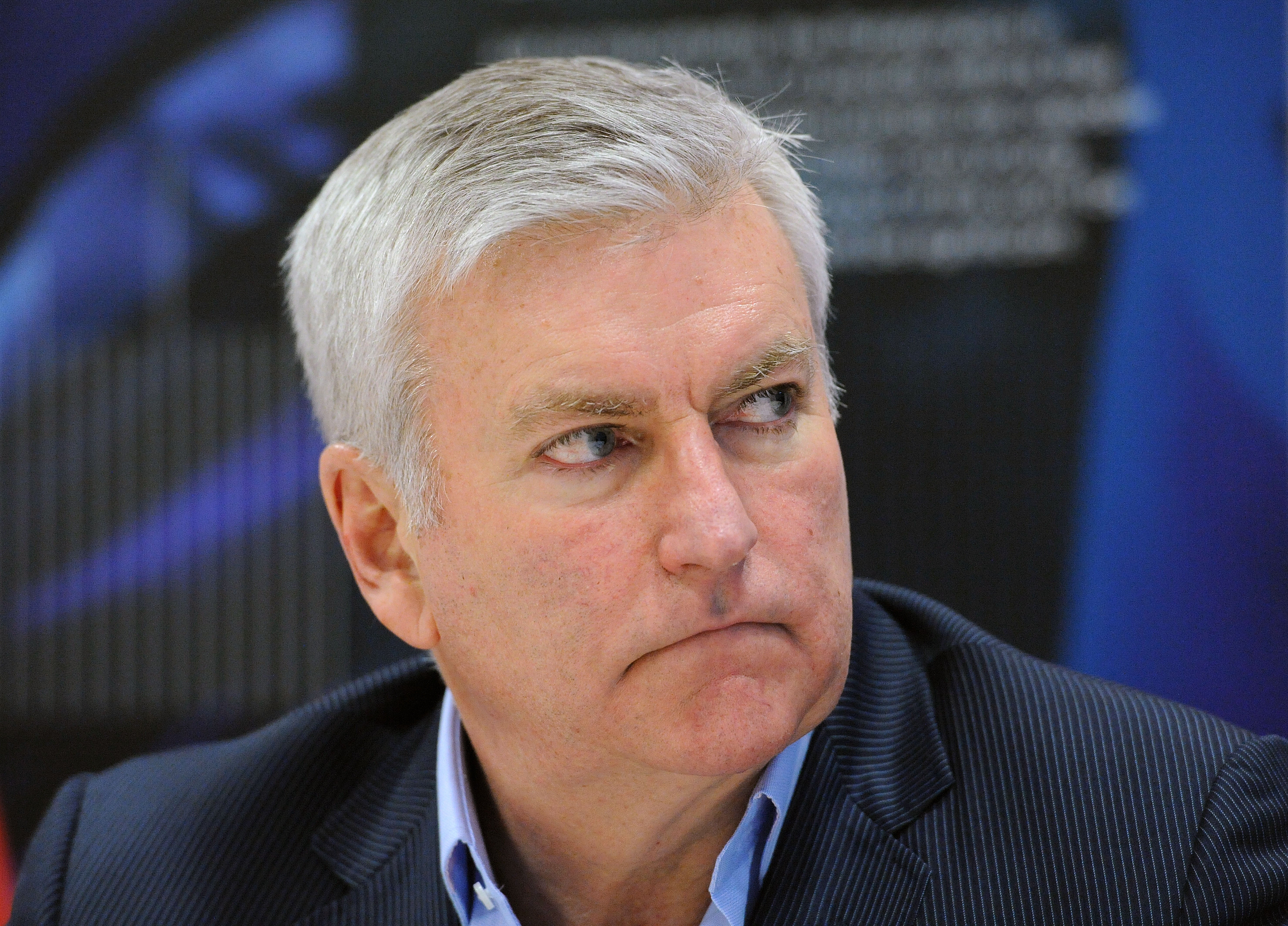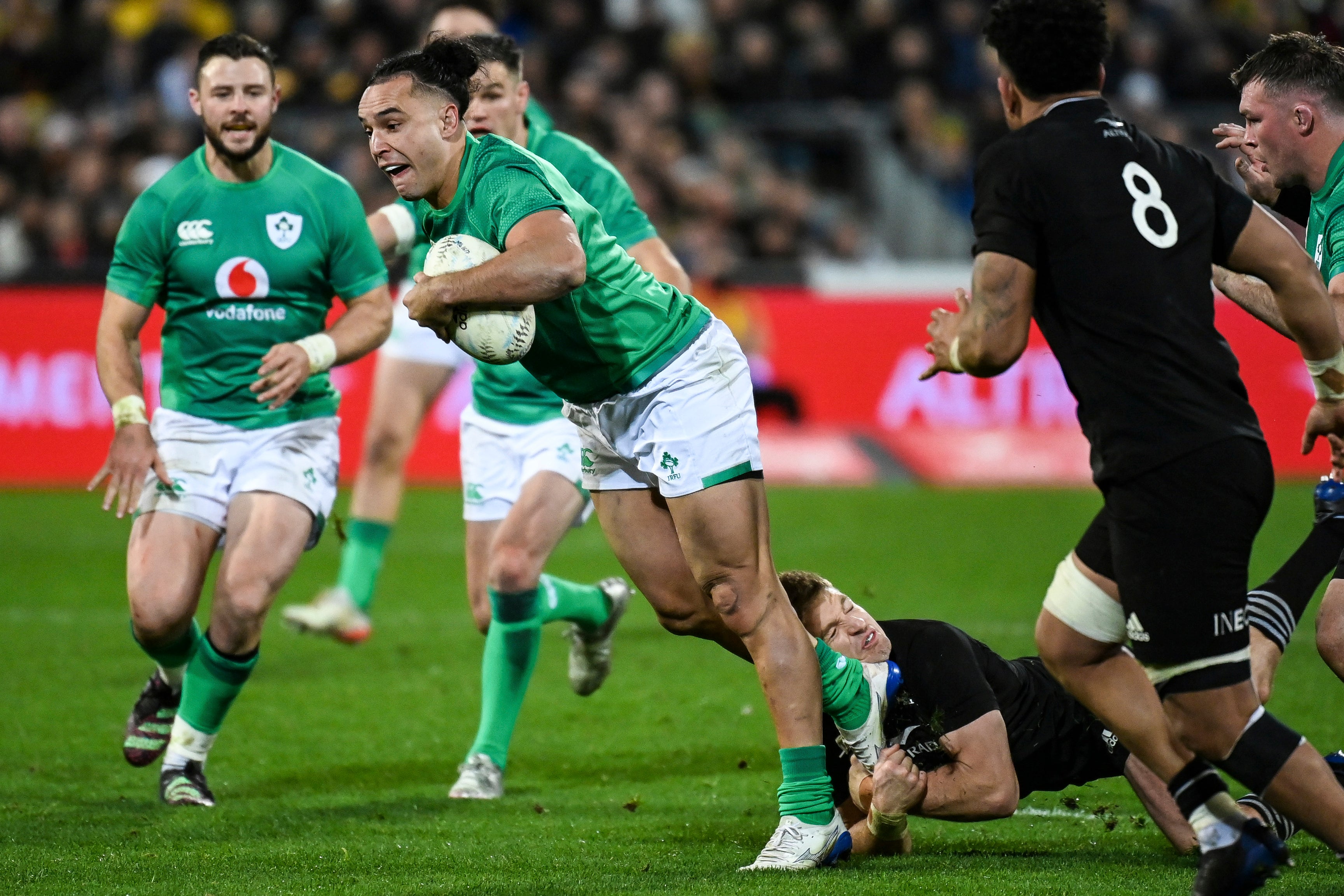Ryder Cup-style Club World Cup gets RFU backing
Bill Sweeney has given his backing to the proposed new competition between the cream of the northern and southern hemispheres

Your support helps us to tell the story
From reproductive rights to climate change to Big Tech, The Independent is on the ground when the story is developing. Whether it's investigating the financials of Elon Musk's pro-Trump PAC or producing our latest documentary, 'The A Word', which shines a light on the American women fighting for reproductive rights, we know how important it is to parse out the facts from the messaging.
At such a critical moment in US history, we need reporters on the ground. Your donation allows us to keep sending journalists to speak to both sides of the story.
The Independent is trusted by Americans across the entire political spectrum. And unlike many other quality news outlets, we choose not to lock Americans out of our reporting and analysis with paywalls. We believe quality journalism should be available to everyone, paid for by those who can afford it.
Your support makes all the difference.Plans for a revolutionary ‘Club World Cup’ could encourage a Ryder Cup-esque rivalry between sides from the northern and southern hemispheres, according to Rugby Football Union chief executive Bill Sweeney.
Under bold proposals eight clubs from the Premiership, Top 14 and United Rugby Championship, seven southern hemisphere teams and a Japanese representative would take part in the competition every four years from 2025.
The championship, comprising four pools of four, would be held ahead of British and Irish Lions tours and crown the best club side in the world.
RFU chief executive Bill Sweeney, who sits on the European Professional Club Rugby (EPCR) board, has been “heavily involved” in discussions and said clubs are “very keen” to finalise plans.
“We actually welcome it, we think it’s a very good idea,” he said. “I’ve been heavily involved and have full transparency around how that’s developing.
“There is still a long way to go with it, it’s not a completely done deal yet, but in terms of direction as a union we certainly support it and I know the clubs are very keen to get it done.”
Sweeney pointed towards this summer’s enthralling southern hemisphere tours for England, Ireland, Scotland and Wales as evidence to support the proposal.
“It just will heighten excitement and awareness around the game,” he said. “Fans are looking for new formats, new things to talk about.
“This summer there was a lot of narrative around the north-south rivalry, it almost felt like a Ryder Cup situation towards the end there, in terms of would we win that series as a northern hemisphere.

“There seems to be more conversation around that and (the proposed tournament) just adds to that in terms of who has the best clubs in the world, the best club setup – is it the north or the south?
“Seeing some of those club powerhouses compete against each other, I think the fans look forward to that.”
Sweeney confirmed the tournament would not add more matches to the already congested calendar.
He also did not rule out the competition taking place more frequently than once every four years.
“It sits in the same window as the EPCR Champions and Challenge Cup, so we’re not adding additional weekends to the calendar which is one of the critical challenges you have in rugby, you just can’t add on additional match weekends,” he said.
“The sense was that doing it every two years would be too much proliferation.
“Allow it to settle down, give it time and space to develop. At this stage having it every four years was the better option.
“There were discussions around 2024, 2025, where does it sit? Having it in the middle of two World Cups is probably the best way to go.
“At this stage once every four years is the optimal solution in the context of a global calendar. But everything is up for re-evaluation and we’re still having these conversations around the global calendar.”
Join our commenting forum
Join thought-provoking conversations, follow other Independent readers and see their replies
Comments